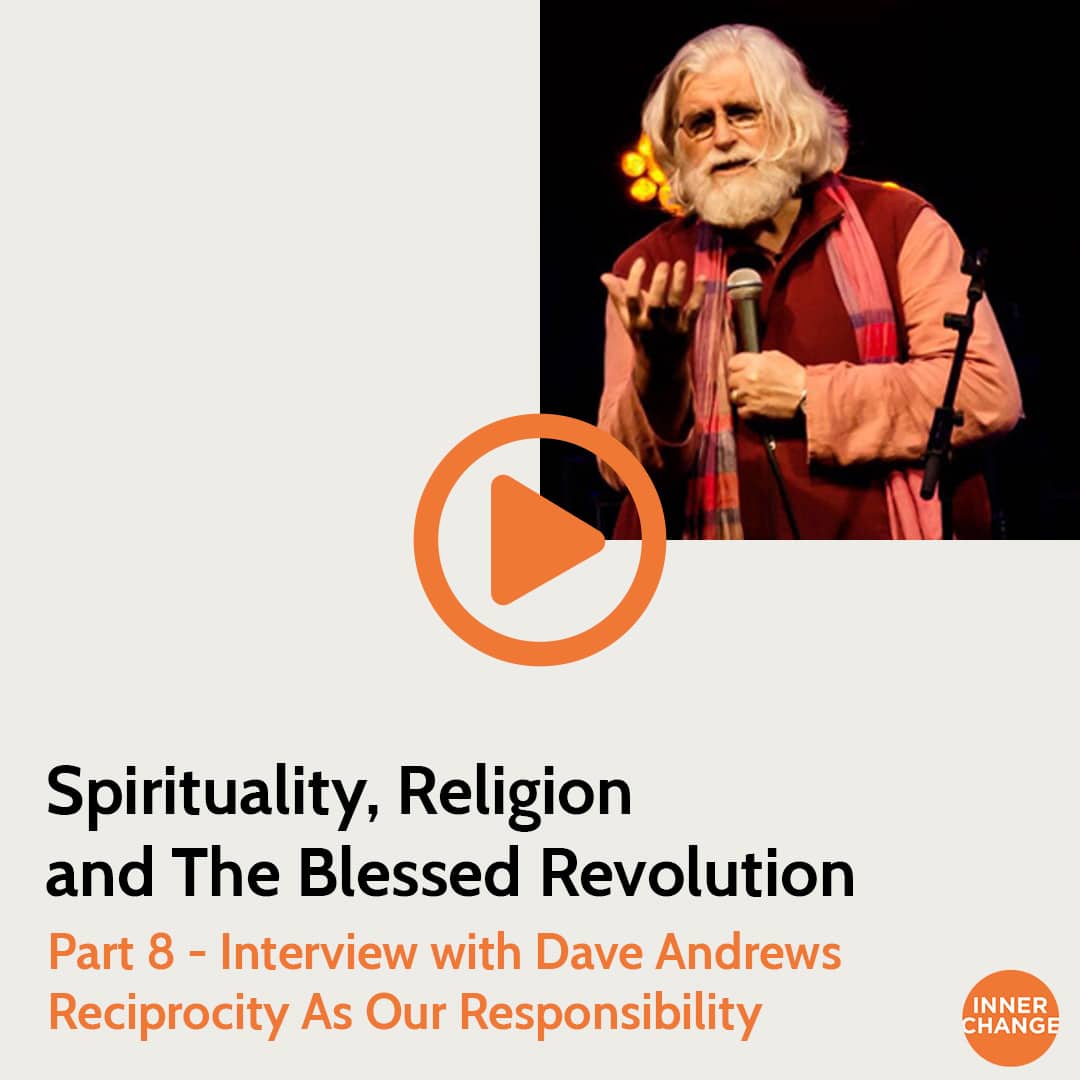Register to our newsletter
We will not sell, rent, or give your name or address to anyone nor market other programs or products to you.
Release on Sunday 31st of January 2021

If you study all religions it's very clear that we all believe that we should treat our neighbor as ourselves. And in fact, scholars like Peter Singer, who is not religious at all, argues for general reciprocity as the foundation of all morality. And if you're going to translate the idea of general reciprocity into ordinary language, it means treating our neighbor as ourselves. So this is fundamental to all cultures. We understand we need to treat our neighbor as ourselves. But what does that mean in a world of poverty and violence? Well the Beatitudes actually unpack that in specific and concrete detail, so we understand what that really means for us in a world of poverty and violence
What is the ‘Golden Rule’?
Why is the practice of the ‘Golden Rule’ the underpinning of ‘Social Capital’?
What are two or three examples of how your own practice of the Golden Rule might enrich the lives of marginalized and disadvantaged people?
'The Golden Rule, enunciated in the Scriptures, is a classic example of generalized reciprocity that is the basis of social capital in community. We are to ‘do unto others as we would have them (sooner or later) do unto us’. (Luke 6.31) Social capital functions as a ‘favor bank’. It is both a private good, in that it benefits us, and a public good, in that it benefits others as well. We need to remember there’s pure gold in that Golden Rule. Social capital often is more important than economic capital in ensuring our welfare. As social scientist, Hugh Mackay, says ‘We are social creatures – we thrive on our personal connections with each other. We are at our best when we are fully integrated with the herd; and at our worst when we are isolated.'
'Community networks of mutual obligation improve our quality of life to a significant degree on a whole range of different levels. Community networks affect safety. Through connecting, checking, mentoring, and supervising, vandalism, graffiti, street crime, and gang violence can all be reduced. Community networks affect prosperity. Where people trust one another, there is a significant reduction in ‘transaction costs’, from security to insurance… where people are … connected to one another … they are (more) likely to get jobs, promotions, bonuses, and other benefits. Community networks affect charity: The most common reason for giving is being asked and the most common reason for not giving, not being asked. People are not likely to be asked if they are not in contact with others. Those not in clubs and churches are ten times less likely to give than others. Community networks affect democracy: The research shows lack of participation in political processes and structures causes poor, corrupt governance, not the other way round. Without participation, governance is more corrupt and less focused on community issues. Community networks affect equality, Networks of reciprocity enhance equality, while disparity undermines solidarity. Income is evenly distributed where networks are strong. Community networks affect health. Because of the encouragement of healthy norms, assistance in ill health, and advocacy for proper health-care, people who are connected to networks are less likely to have heart attacks, strokes, cancer—even colds! (And) Community networks affect happiness. The best single indicator of happiness is connectedness. Those who have little connection with family and friends are more likely to experience loneliness, low self-esteem, sadness, eating and sleeping disorders, and depression.'
Living Community 14-16.
From: Dave Andrews And Friends Songs Of Love And Justice - Love only Love
Dave has written more the 18 books, you can find all of his books here: Dave Andrew's books.
Dave Andrews has 18 interviews on our website. You can watch all Dave Andrews's interviews here.
Dave, his wife Ange, and their family, have lived and worked in intentional communities with marginalised groups of people in Australia, Afghanistan, Pakistan, India and Nepal for more than forty years. He now lives in a large joint household with his wife, children, grandchildren and others in an inner city community in Brisbane, Australia.
Dave is particularly interested in radical spirituality, incarnational community and the dynamics of personal and social transformation. He is author of many books and articles, including 'Christi-Anarchy', 'Not Religion, But Love', 'Building A Better World', 'Down Under - In-Depth Community Work', 'Out And Out - Way-Out Community Work', 'Compassionate Community Work', 'People of Compassion', 'Living Community', 'A Divine Society', and the Plan Be Series - 'Plan Be', 'Hey, Be And See', 'See What I Mean?'
Dave and Ange and their friends started a residential community called Aashiana out of which grew Sahara, Sharan and Sahasee – three well-known Christian community organisations working with slum dwellers, sex workers, drug addicts, and people with HIV/AIDS in India. They are currently a part of the Waiters Union, an inner city Christian community network working with Aborigines, refugees and people with disabilities in Australia. Out of the Waiters Union has grown the Community Initiatives Resource Association, auspicing local experimental community activities, and the Community Praxis Coop, providing holistic community work training.
Dave is the coordinator for training with the Community Initiatives Resource Association, a teacher for Praxis and Christian Heritage College and an elder emeritus for Servants To Asia's Urban Poor.
Dave is involved nationally and internationally in interfaith dialogue and engagement. He has published three books of Christian-Muslim reflections - ‘Ramadan’, ‘Bismillah’ and ‘Isa’. Most recently he has published his ground-breaking, peace-making book - ‘The Jihad Of Jesus: The Sacred Nonviolent Struggle For Justice’, which has been translated into Dutch and German. Dave is sharing the message of ‘The Jihad Of Jesus’ with people in churches, mosques, seminars, workshops and festivals around Australia, New Zealand, the US, the UK, Europe and Asia. See events, reviews and interviews at www.jihadofjesus.com.